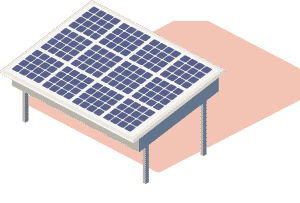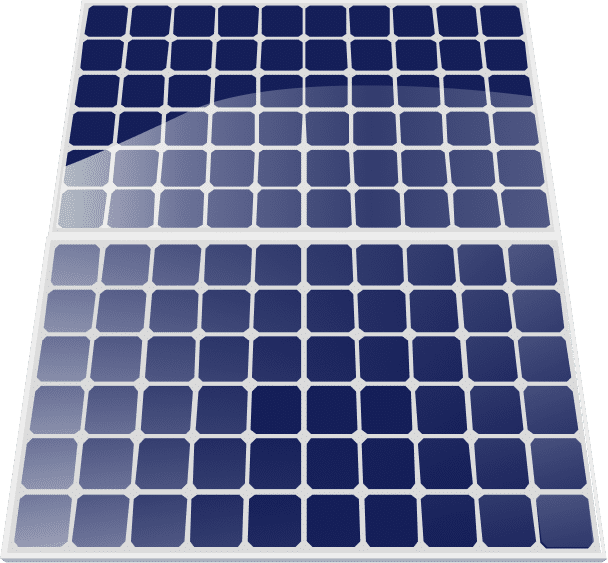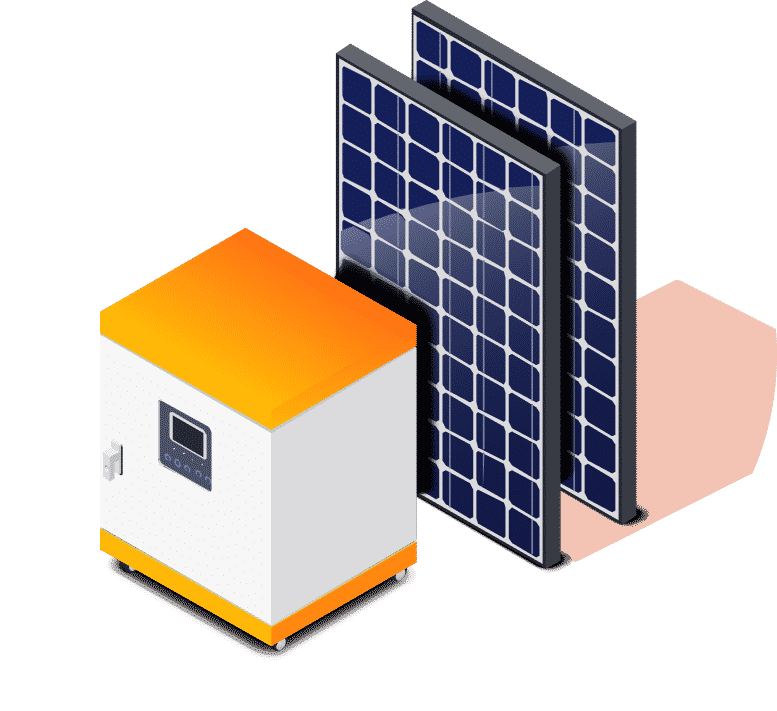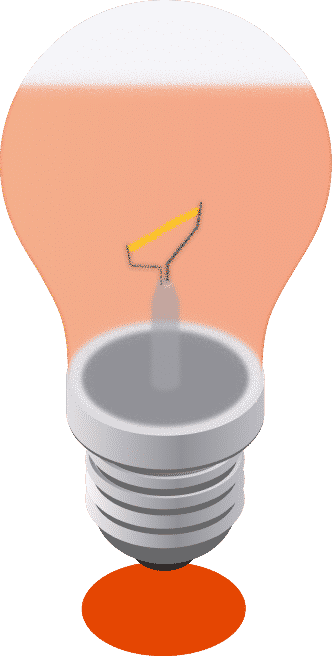Solar Financing

Solar Financing
Solar panels are a fantastic way you can save cash, lower the carbon footprint of your home, and increase property value. After you have decided you want solar power for you, you will need to determine how to pay for them. We’ll show you how to pay cash, take out an agreement to lease them or even apply for a personal loan.
What is a Solar panel loan?
Solar panels harness sun’s energy to generate electricity. Solar panels are installed on homes by people for two main reasons: to cut down on their electricity bills as well as to aid in reducing greenhouse gases.
Solar panel financing is designed to help homeowners to obtain the funds they need to buy an array of solar panels. Solar panel loans permit homeowners to finance the installation of solar panels over a period of years rather than having to fund the installation from their own pocket.
Savings
Solar panels can save an average American family more than \$1,400 annually in electricity costs. Even though homeowners can save significant cash, there’s a large upfront cost. This is where a loan from the Shneyder Solar can help. The{ average|| typical} cost of installing solar panels for a home with an estimated size of U.S. is between $11,144 to $14,696 according to Shneyder Solar. It is estimated that the total price of solar power can be reduced with tax incentives, which we’ll discuss in the future.
Personal loans
You can look up Shneyder Solar, the most affordable personal loans and rates for financing solar panels right now. You can also find information about the credit requirements and the loan amount, terms, and more in the information provided by Shneyder Solar, our most trusted personal loan lenders.
A personal loan can be a great option if you are looking for a loan to solar. Personal loans come in a variety of sizes and come with attractive conditions and low rates for borrowers with good credit.
There are two types that are secured and unsecured personal loans. Unsecured personal loans don’t require collateral. The secured loans will require collateral. Secured loans tend to have a lower interest rate and monthly payment because the lender is aware that you can fail to pay the monthly installments and can sell your collateral to recover their losses.
How do you pay for going solar?
Your income and credit score, your location and how long it will take for the array to worth it all determine which financing option is best. For reliable and expert advice on financing solar panels, speak to an expert. Each choice has advantages and disadvantages. Each has an impact on the amount you save as well as how long it will take to pay the solar panels off.
Although solar leases were popular during the previous years and could have served the neighbor you live next to, now you could have better financing options. There are many options available through Shneyder Solar for zero down solar financing.
There are two kinds of financing options for residential solar: Direct Ownership or Third Party Ownership.


What credit score do I need to get a personal loan for solar panels?
Shneyder Solar will determine the minimum credit score needed for personal loans. In order to be approved your credit score needs to be at or above 580. Credit score-conscious borrowers are more likely to be approved for the most favorable rates and terms for repayment.
You may put off solar panel installation for a few months. If you are able, look into increasing your credit score. Review your credit report to find errors, pay off high interest loans (such as credit card debt) and create an excellent payment history by paying your bills promptly.
Apply for personal loans for those who have bad credit, in the event that you do not already have the credit rating you require but you still want the financing of solar panels. Your credit score can reduce your chances of being denied the loan. You’ll be able to pay{ the|| your} monthly payments for the loan you decide to take without being concerned regarding your credit rating.
If you’re a credit-worthy person, personal loans will be available with very attractive interest rates. Low interest rates could save you many hundreds over the period of repayment. Even a small change of just 1% could mean significant savings. To make the most of your savings, search for personal loans with low interest rates which are readily available.
Other loans for solar panel financing options
Loan from the government
Power Saver is an Federal Housing Administration program that helps homeowners save energy by offering loans for a wide range of technologies. There are two options available to homeowners within this program that provide large enough loans to completely finance financing for solar panels The program includes Power Saver Energy Rehab 203(k), Loan or Power Saver Energy Rehab 203(k), Loan or the Power Saver Second Mortgage. In order to be eligible for this type of loan the borrowers must be able to meet certain criteria, including the minimum rating of credit (660) and an amount of debt per income of 45%.
- The Power Saver Second Mortgage permits homeowners to receive up to \$25,000 in second mortgages to improve efficiency in energy by installing solar panels. The homeowner must not be a homeowner with any second mortgage, home equity loan, or second lien in order to be eligible to participate in this scheme. The loan can be repaid within 20 years.
- For anyone who is buying or refinancing their home and wants to cover the expense of improvements to the loan, the 203(k) loan is available. You can pay back the loan over the entire term of the mortgage.
These loans are well-known because they offer an interest rate that is lower than personal loans, but the repayment time is longer. FHA is strict about what you can spend so it is likely that you’ll stay within your budget and only buy the items you really need.
FHA finance restrictions apply. That means you must to remain within the spending limit. It could be necessary to replace the solar panels in the event that you finance solar panels over 20 years. Shneyder Solar is familiar with these programs. FHA regulations must also be followed. This could delay the loan process.

Home equity loan
Home equity loans let you to draw money from your equity to fund renewable energy. The typical bank lends up to 85 percent of your equity for projects similar to this. If your home’s value is at $300,000. but you owe only $200,000, you’ll have $100,000 equity. The bank will approve the loan up to $80,000. The home equity loans to finance solar panel installation allows you to secure a good interest rate because your property is utilized as collateral. The bank can also repossess your property if you default on payments.
Solar leasing
Technically, this doesn’t require you to buy an array of solar panels. This program lets you rent (or hire) solar panels. Solar panel companies offer leasing programs that require no down amount. The benefits are immediate energy savings as the Shneyder Solar installs your panels. You will not be eligible to receive tax credits or the right to own the panels. In addition, you’ll miss out on tax savings and solar incentives.
Taking Out a Solar Loan
You can obtain a loan from Shneyder Solar if you don’t have enough cash to buy your solar system. This solar financing firm offers flexible loan payment options to customers who need to put up cash in advance, pay the loan off quickly, have poor credit, or want to save more immediately. A solar loan typically requires no down payment, which makes the loans appealing and practical.
Shneyder Solar will charge you an additional cost to finance your system, as a home mortgage or auto loan company. The cost of financing your system will differ according to your credit score as well as the duration of the loan.
Interest rates are an additional cost factor to consider when looking at a solar loan. APR, or annual percentage rate (APR) is the price of additional monthly payments. It comprises both the interest rate as well as other fees. Your monthly payment will increase because of the fixed APR. You should look into all options prior to choosing the best APR for financing solar-powered projects.
Except for PACE financing, getting the loan will require a soft credit check. An average credit score of at least 640 points is required to be eligible for a solar loan.
In addition to a good credit score, you’ll need to have the following documents in order to be qualified for the loan offered by an solar company:
- To determine the amount you can borrow, you’ll have to develop your plan.
- A loan application
- Approval from your loan provider
Shneyder Solar allows you to apply for a loan and finance your project after you have received and selected a bid from the solar contractor.
Types of Solar Panel Loans
Re-amortizing a term-loan
We recommend that you utilize the Tax Credit to re-amortize your loan when you receive it. Remortization will lower your monthly payments for the remaining loan term.
Similar to cash option
This option will allow you to base your monthly payments on 70% of the loan principal for the first 12-18 month. This will allow you to pay 30 percent of the principal with the money that you’ve saved from your tax credit over your next grace time which is usually 12 months. The homeowner can get 30% off their first payment per month with Same as Cash.
Combo Loans
A Combo Loan comprises two components.
It’s the Bridge Loan. The 30% tax credit to your income tax for the year, as you bought your solar system with a loan. A combination loan allows you between 12 and 18 months to pay off 30 percent of the principal. The federal and state tax credits are able to be utilized to pay off the first portion of the loan. Additionally, you will receive lower interest rates for the remaining portion of the loan term. You will need be able to cover the first 30% your loan in accordance with those Bridge Loan terms and the tax credits. You could need to pay from your pocket or high interest rates in the event that your income taxes exceed your tax credit.
The Net Solar Term Loan. The remaining period of your loan will allow you to pay 70% from the principle.
Direct Ownership: Buying Solar Panels
Going solar using cash
Cash is the most effective! Cash payments are the ideal method to save money and earn the most on your investment. This is the only way to receive solar energy without paying charges.
When your solar panel is turned on, it’ll generate free energy, and also save you money. The dimension and nature of the solar panels you select, the typical payback time for solar panels on rooftops in the United States can take between 4-8 years.
It is easy to buy a solar power plant with cash since there are no third-party solar financiers.
Shneyder Solar offers 4 advances on cash purchases:
- “Down payment/deposit” generally, $1,000 is due when your site visit is complete
- “Due after Approval of Site Designs” - $2,000 due after you have approved your ‘final site design’ from the installer
- “Due on the Delivery of Materials” 60% of the amount is due when equipment is delivered, or on the first day following installation
- “Due on the day of the final building inspection” The balance due once your project has passed city building inspection.
The benefits of owning solar
Your solar system will provide you with more savings throughout the duration of your life
While the savings you earn over time could differ based on the amount of energy you consume and the zip code you live in, owning your solar system is the best option for those who are interested in solar. Renting from a third-party system can result in higher saving if it is owned by your system.
Solar ownership directly increases your home's value
Based on the U.S. Department of Energy’s Lawrence Berkeley Labs, home-buyers will be charged \$4/Watt more to install solar panels. The value of your home is determined by solar panels, which will provide free electricity for many years. You may still be able to sell your home even if you’re paying off the loan. You can transfer the loan the tenant, or repay the loan balance by selling the property.
The Solar Investment Tax Credit is available to you
You must meet the following requirements to be eligible for tax credit:
- You can buy your system using a loan or cash
- You can pay income taxes equal to or greater than 30% of the system cost
It’s as simple as that! This is a step-by procedure guide that will help you apply for the Federal Solar Investment Tax Credit. The tax credit is 30 percent of the amount of the solar system. The total credit is taken from your personal income tax during the year that the system begins production. What happens if there are lower income taxes than your tax credit? This Solar Investment Tax Credit will carry over to the next year, if needed, up to a maximum of five years.
Solar Ownership Cons
One of the disadvantages of owning your system, however you are responsible for maintenance of the panel
Maintenance is simple, thanks to the ease that solar panels offer. Solar panels do not have moving parts, so it requires minimal or even no maintenance. Although your solar system may need to be cleaned when dirt or dust build up, tilted panels can be easily cleaned by regular rain. It is your responsibility for finding solutions if your panels become damaged. Shneyder Solar offers a strong warranty to protect you against any unforeseeable harms.
You must monitor your energy production if you own the system. Every month, check your energy bill and solar output. If you do not check your system regularly the system may be unnoticed for months.
What to look for when financing solar panels
It is possible that you are compelled to select a specific type of lender for financing solar panels. Allow Shneyder Solar help you to make the right choice when it comes to purchasing. An interest differential of just 1 percent could make a difference in saving you many thousands over the duration of the solar loan.
Here are some tips to consider when making a solar loan.
- Lower interest rate. Solar panels{ will|| can} pay back faster if you make less payments on your loan.
- Repayment terms that are attractive. Personal loan terms that are appealing. Your monthly payments could be too high if your timeframe for repayment is too long. You will pay more interest if the period is too long. The shortest possible loan term is the one you’re in a position to pay for.
- Perks. Solar power financing perks that are top-of-the-line include a lower rate of interest for autopay, access online to your loan’s information, and unemployment insurance.
Is solar panel financing right for me?
When you sign the contract for solar power financing through Shneyder Solar, you will be eligible to receive an income tax credit from the federal government. You may also be qualified for tax incentives from the state or local government, based on the location you live in.
The Federal Solar Tax Credit, commonly referred to as the ITC, or investment credit (ITC) provides the deduction of 26% from federal taxes to cover the price of your solar system. The incentive will decrease to 22% by 2023, and it expires after 2024 on residential systems. If, however, you have a $12,000 system installed this year, the federal tax credit will be $3120 ($12,000 x 0.26 equals 3,120).
It’s a big decision to finance an investment. Take a look at your budget for the month, and how much you will reduce your total expenses to decide if a solar loan is the right choice for you. You can use pencil and paper to calculate the{ actual|| exact} cost of the loan considering tax credits and lower utility bills. There aren’t many home improvement projects that are environmentally friendly decrease our dependence on fossil fuels and increase the property’s value. It’s worthwhile to look into solar power financing.
GET YOUR FREE PROPOSAL IN A FEW EASY STEPS
Fill out the form and our sales consultant will contact you! Once you’ve had your initial consultation, you’ll begin your solar journey.
